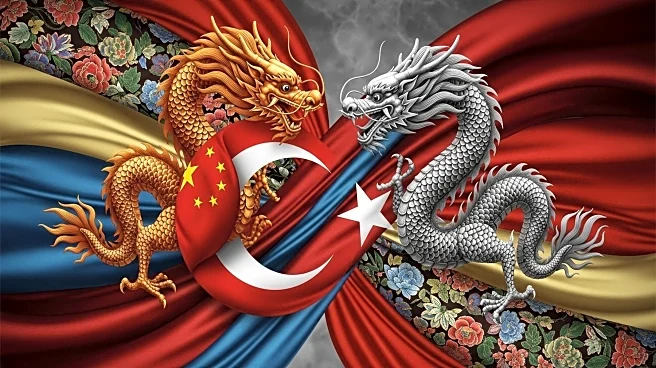What's Happening?
Chinese President Xi Jinping has called for increased security cooperation with Turkey, particularly in counter-terrorism efforts. This statement was made during a meeting with Turkish President Tayyip Erdogan on the sidelines of the Shanghai Cooperation Organization (SCO) Summit in Tianjin, China. Xi emphasized the importance of exploring new cooperation opportunities in sectors such as new energy, 5G technology, and biomedicine. The SCO Summit serves as a platform for member countries to discuss regional security and economic collaboration, with China and Turkey seeking to strengthen their bilateral ties.
Why It's Important?
The call for enhanced security cooperation between China and Turkey highlights the strategic importance of their relationship in addressing regional security challenges. As both countries face threats from terrorism, collaboration in counter-terrorism efforts could lead to more effective strategies and operations. Additionally, the focus on new energy, 5G technology, and biomedicine indicates a mutual interest in advancing technological and scientific innovation, which could bolster economic growth and development. This cooperation may also influence geopolitical dynamics, as China and Turkey align their interests in the face of Western influence.
What's Next?
Following the SCO Summit, China and Turkey are likely to engage in further discussions to outline specific initiatives and agreements that will enhance their security cooperation. These discussions may lead to joint projects or partnerships in the identified sectors, potentially involving other SCO member countries. The outcomes of these talks could impact regional security policies and economic strategies, with potential reactions from Western countries monitoring the growing influence of the SCO.
Beyond the Headlines
The strengthening of China-Turkey relations within the SCO framework may have broader implications for global geopolitics. As both countries seek to counter Western influence, their cooperation could lead to shifts in alliances and power balances. The focus on technology and biomedicine also raises ethical and regulatory considerations, as advancements in these fields may require new international standards and agreements.









